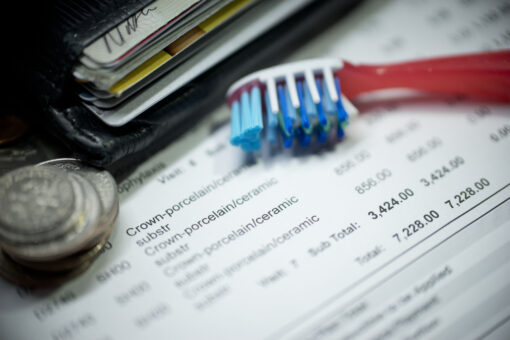
In the state of California, if a dentist or a debt collector files a lawsuit against you and secures a judgment, they possess similar rights as any other individual or entity holding a judgment. This means they can request the court to issue orders permitting them to garnish your earnings or seize your assets to fulfill the judgment.
Read on to learn more. If you would like honest, comprehensive advice about whether or not bankruptcy is the right choice for you, contact Law Offices of Terrence Fantauzzi at (909) 552-1238 for assistance.
The Underlying Issue of Dental Debt
News headlines frequently spotlight the overwhelming medical debt weighing down Californians and other U.S. residents. However, the true magnitude of this problem might be obscured. Often, patients cover medical bills using credit cards, including those specifically designed for medical purposes. While these balances may not be classified as overdue medical debts as long as timely payments are maintained, they indeed mirror unpaid medical expenses.
The ambiguity extends to dental debt, an area which seems less discussed. Yet, a study from the Kaiser Family Foundation (KFF) sought to shed light on this by exploring various forms of debt, such as overdue medical or dental bills, payment plans with healthcare providers, debts including medical or dental expenses owed to banks or agencies, and amounts borrowed from acquaintances to cover medical or dental costs.
Unveiling the Realities of Medical and Dental Debts
The research revealed that 41% of adults have some form of debt resulting from medical or dental procedures. This number swells when considering demographics such as lower-income families, individuals without tertiary education, women, racial minorities, and those without insurance. Interestingly, even sectors perceived as financially stable aren’t immune:
- 26% of households earning $90,000 or more annually acknowledged current healthcare debt.
- 31% of college degree holders admitted to having medical debt.
- 44% of insured individuals reported medical debt.
Dental Debt’s Place in the Larger Picture
The study didn’t specifically differentiate between dental and other medical debts. However, when respondents were prompted to identify the medical services contributing to their debt, dental debt was mentioned by 49%, ranking fourth after lab fees, doctor consultations, and emergency care.
Remarkably, dental debt was consistently present across all age brackets. For instance, while 18-29-year-olds reported a 45% rate, it peaked at 52% for those aged 30-49. And intriguingly, 48% of those 65 and above had dental bills pending. Given that Medicare doesn’t extend to dental costs, this statistic becomes particularly striking.
Tackling the Challenge of Medical and Dental Debts
Addressing medical and dental debts can be daunting, as health emergencies are unpredictable and seldom can be postponed. While providers might suggest credit cards or dedicated medical credit avenues, it’s generally wiser to negotiate a payment scheme directly with your healthcare provider. Here’s why:
- Certain medical institutions might waive a part of your debt.
- Paying directly to the provider could be devoid of interest or come with much lower rates than credit cards.
- Medical debts have distinctive reporting rules, aiming to lessen their impact on your credit score.
If you’re unable to establish a direct payment plan, it’s crucial to steer clear of high-interest routes. For instance, a $2,500 medical debt on a dedicated card with a 26.99% interest rate could take over three years to settle, accruing over $1,200 in interest.
Should your medical or dental debts become insurmountable, bankruptcy might be a viable solution. To explore this further and ascertain the best course of action, seeking expert advice is essential. Feel free to connect with one of our seasoned bankruptcy professionals at Law Offices of Terrence Fantauzzi by calling (909) 552-1238 or using our online contact form.
